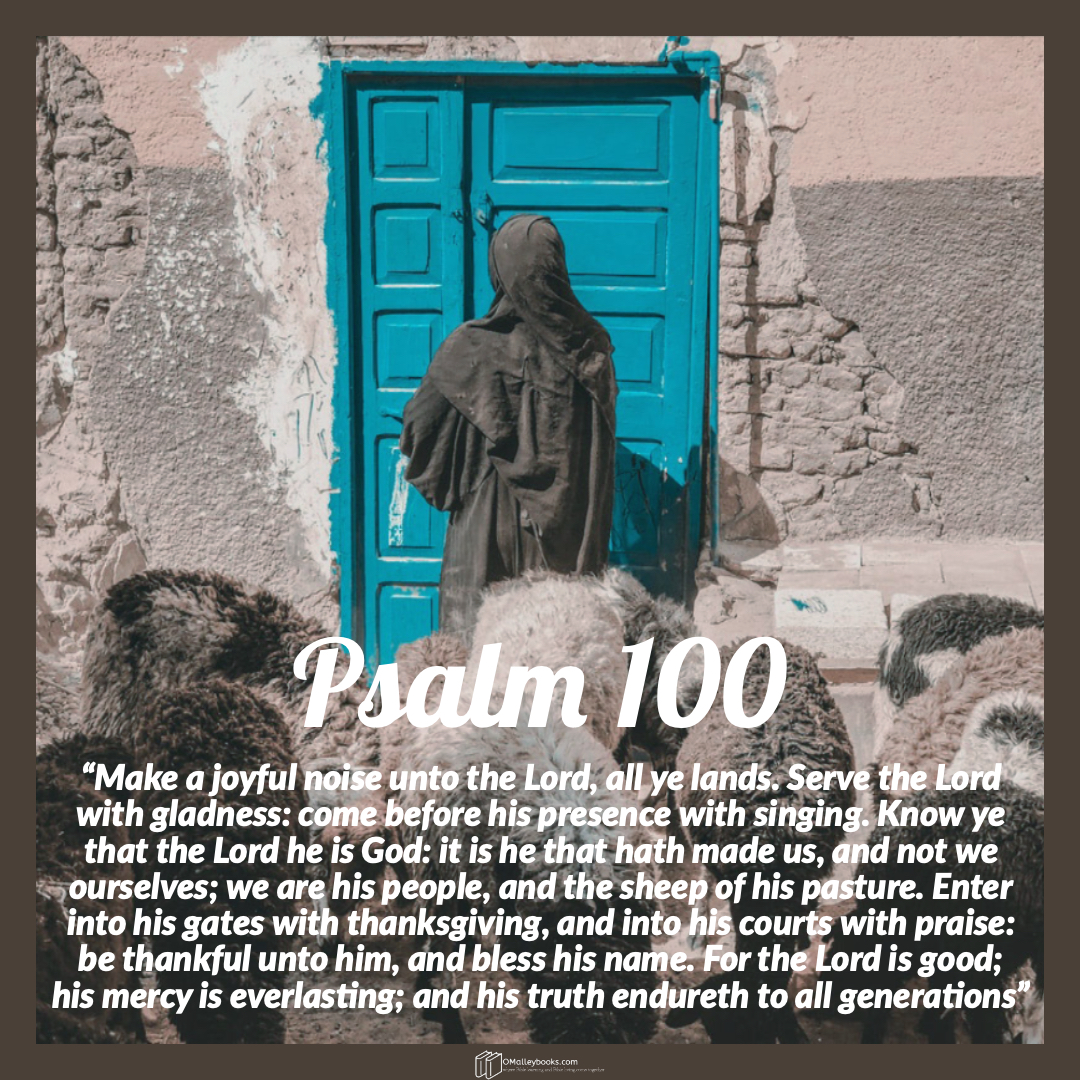“Make a joyful noise unto the Lord, all ye lands. Serve the Lord with gladness: come before his presence with singing. Know ye that the Lord he is God: it is he that hath made us, and not we ourselves; we are his people, and the sheep of his pasture. Enter into his gates with thanksgiving, and into his courts with praise: be thankful unto him, and bless his name. For the Lord is good; his mercy is everlasting; and his truth endureth to all generations” (Psalm 100:1-5).
I grew up in a ministry home. My father and mother served in church ministry and Christian education. At times, they left us kids at home as they tended to ministry duties. When they did leave, they would give us a list of chores to do before they returned. When my parents returned, they expected us to have the chores done.
There were times, as children, we would say we did not understand their instructions. Their instructions were always simple: “Do this. Take care of this. Go here. Pick this up. Handle this.” Yet we found ways not to do those tasks. Upon our parents’ return, we declared to our parents that we did not understand the assignments.
In truth, their tasks were always simple. It was just, as children, we could be lazy. However, it did not matter if we understood the task. Our parents held us accountable for each task assigned.
The psalmist in this psalm of praise gives seven divine assignments. These assignments are simple. They are easy to understand because the Word of God is not complicated.
If the Word of God seems complicated, it is because we have tried to twist the meaning or because we used tradition to interpret the meaning. Sometimes, because we are lazy, we say the Word of God sounds complicated. The Word of God is easy to understand.
Look with me at the simplicity of these seven action words found in this psalm. The psalmist uses them in successive order: Make. Serve. Come. Know. Enter. Be. Bless.
The psalmist calls us to serve the Lord with gladness. Do you serve the Lord? If you do, do you serve the Lord with gladness? Gladness is an attitude of the heart. The psalmist in Psalm 4:7 speaks of gladness as when the farmer celebrates his harvest. In Psalm 30:11, he states that when his mourning and sackcloth were put off, he put on gladness with dancing. When you serve the Lord, do you have that kind of gladness? The gladness commanded here is first a decision; then it is an expression.
The psalmist calls us to come to the Lord’s presence with singing. How often do you come into His presence with singing? Does it seem you come more times into His presence with complaining and whining than singing? How pleasant it must be to God to hear us sing! Like serving the Lord with gladness is a choice, so is coming before His presence with singing. The darkest hours of our lives can be brightened with our choice to sing. Jesus sang with His disciples before His betrayal. Paul and Silas sang at midnight from prison. When you realize God is awake in your darkest hour and is present to hear you sing, knowing He is listening makes the choice to sing easier.
The psalmist calls on us to know the Lord is God. It seems at first glance too simple. You might say, “I know He is God.” But do you? Do you know He is God when the pathway grows dark? Do you know He is God when the way gets hard? Do you know He is God when sickness comes? Do you know He is God when death comes to your family? It is a command. We are to know, at all times, He is God.
The psalmist calls us to enter into His gates with thanksgiving. It seems impossible to conceive that we could be anything other than in a perpetual state of thanksgiving. However, life distracts us from thanksgiving. Doubts and fears rob us of our thanksgiving. Yet it is a command. As we enter the presence of the Lord, we are to do so with thanksgiving. Do you do this?
The psalmist calls us to be thankful unto Him. In the New Testament, Paul calls us to the same task. He wrote to the Thessalonians that in everything, we are to give thanks (I Thessalonians 5:18). The previous command of thanksgiving and this word “thankful” are the same word in the Hebrew language. When we see the word “thanksgiving,” it is an expression of words of praise. Thanksgiving is a testimony offered giving praise to God.
The word “thankful” is the internal gratitude of heart and mind. Our praise of thanksgiving comes from a disposition of thankfulness. Being thankful is a simple command. It is insufficient to just have thoughts of thankfulness when it comes to God. Our thoughts of thankfulness to God must become oral expressions. These expressions of thanksgiving are told to others, told to God, and spoken within our own hearts. Our expression of thanksgiving must come from a spirit of thankfulness. Are you thankful? Do you offer words of thanksgiving to Him?
The psalmist calls us to bless the name of the Lord. The spirit of this word means to bend our knee and express our sentiment of worship to God. The previous two commands of thanksgiving and thankfulness will produce this action. We must tell Him we are thankful. We must give thanks. His name is above every name. His name alone is worthy of our worship. When did you last follow this simple command?
Each of these action words is a task left for you to do. I encourage you to take them to heart. Analyze each command. Make a list of these seven commands. Compare these commands to your life; then evaluate your obedience to them. Ask yourself these questions:
Do I make a joyful noise to the Lord?
Do I serve the Lord with gladness?
Do I come before His presence with singing?
Do I know that the Lord is God?
Do I enter His gates with thanksgiving?
Am I thankful unto Him?
Do I bless His name?
Over the next few days of reading, I want to walk with you in the Word of God. I will point to what stands out to me in each verse. In each reading, I will close with a question designed to prompt you to act on what we studied together.
Then I encourage you to reflect and evaluate your own heart before the Lord with that passage of Scripture. Ask the Holy Spirit to bring conviction and comfort in your heart to these areas of need.
I need Him every hour for everything.
Get started reading this devotional here: Make a Joyful Noise





















